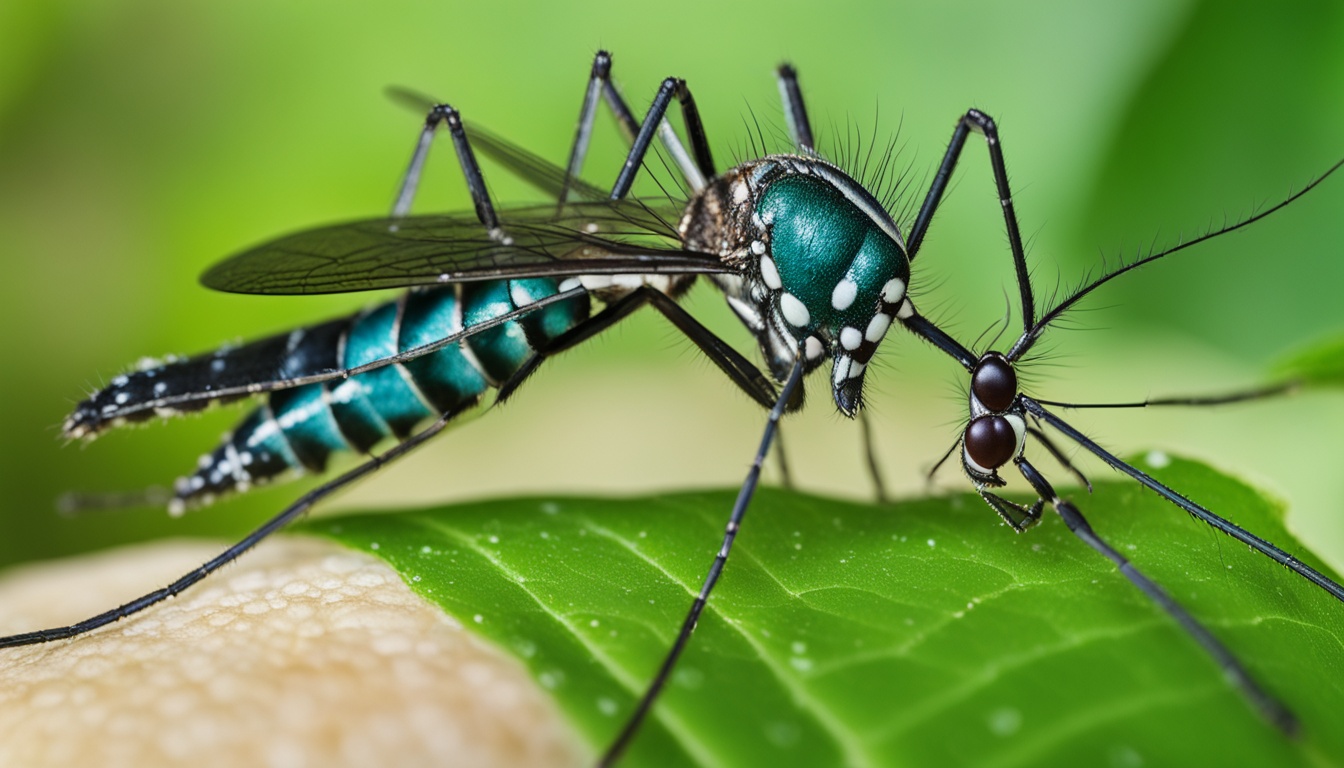Dengue fever is a common viral infection spread by mosquitoes. It affects millions across the globe. This virus is often seen in warm, tropical areas. Signs of the disease are a high fever, headache, body aches, and more.
It is caused by the dengue virus, which comes in four types. Sadly, there is no specific medicine for it yet. To stop its spread, we must work on getting rid of mosquito homes.
Recently, scientists have been looking at how stem cells might help with dengue fever. By using a mix of certain types of cells, they aim to boost your body’s ability to fight off the virus. This treatment can also repair any harm it has done to your body. In studies with animals, it showed improvement in liver health and lowered the amount of harm to organs.
Key Takeaways:
- Dengue fever is a viral infection transmitted by Aedes mosquitoes.
- Symptoms of dengue fever include fever, headache, muscle and joint pain, weakness, anorexia, and nausea.
- Dengue virus has four serotypes.
- There is currently no specific treatment for dengue fever, but prevention measures such as eliminating mosquito breeding sites can help.
- Stem cell therapy shows promise in promoting viral clearance and repairing damaged tissues in dengue infection.
Epidemiology and Clinical Manifestations of Dengue Fever
Dengue fever is a major global health issue, affecting millions every year. It is common in areas like Southern Africa, Southeast Asia, and the Western Pacific. With about 390 million cases and 96 million sick people each year, the disease’s reach is wide.
Knowing the signs of dengue fever early is key to treating it well. Symptoms include a high fever, body aches, loss of appetite, and feeling sick. Many people with dengue experience these problems.
Testing in the lab is very important to diagnose dengue and see how bad it is. Common test results show low platelet and white cell counts, and high liver enzyme levels. Sometimes, there are also more serious problems like pneumonia.
Studies have shown that certain immune cells are tied to dengue fever. Cells like T cells, B cells, and dendritic cells play a part in the disease. Fewer of these immune cells can mean a person is more likely to get seriously sick from dengue. Especially, dendritic cells are useful in telling how severe dengue might be.
Learning more about how dengue spreads, its signs, and what we find in the lab is crucial. This helps us come up with better ways to prevent and treat dengue. More research is important to understand the immune response better and to find new treatments.
Dengue Virus Transmission during Stem Cell Transplantation
Stem cell transplantation helps many with blood cancers and immune issues. It aims for a full recovery and better life quality. Even with strict checks, viral spread during this process is still a worry.
The dengue virus mainly spreads in tropical areas, including through stem cell transplants. In one case, a donor from an epidemic zone spread the disease. The patient, who was battling a blood cancer, got dengue and sadly died shortly post-transplant.
This sad event shows why careful donor selection is key. Especially important is checking donors who recently visited high-risk areas. This helps avoid cases like the one mentioned.
To keep transplant receivers safe, donors need meticulous screening. This includes looking deeply into their travel history for any potential risks. It is vital for those coming from dengue-prone regions.
Also, every potential donor should be tested for dengue, even without any travel hints. This is to catch any silent virus carriers. Such checks are essential to stop dengue from passing on during the transplant.
Viral Transmission Prevention Strategies
Aside from donor checks, there are more steps to stop viral spreading in transplants, like:
- Surveillance and testing of transplant recipients for viral infections
- Isolation and infection control measures to prevent the spread of infections within the transplant unit
- Education and training of healthcare personnel on infection prevention and control guidelines
- Strict adherence to standard precautions and the use of personal protective equipment
These actions lower the chance of viral spread during stem cell procedures. They are key to protecting those receiving transplants.
Conclusion
Dengue fever is a big problem worldwide, affecting millions yearly. Current treatments are limited, so preventing it through controlling vectors is key. But, stem cell therapy shows promise in treating dengue.
Using stem cells, like hematopoietic and endothelial progenitor cells, may clear the virus and repair tissues. It could also enhance organ function. This breakthrough therapy aims to lower dengue’s severe impacts.
This new approach brings hope to fight dengue. It could lower the illness and death it causes. However, more study and trials are needed to understand and improve the therapy.
Advances in stem cell treatment give hope for better control of dengue. In the future, we might see improved outcomes for patients. Together, we could reduce dengue’s harm through healing and prevention.

